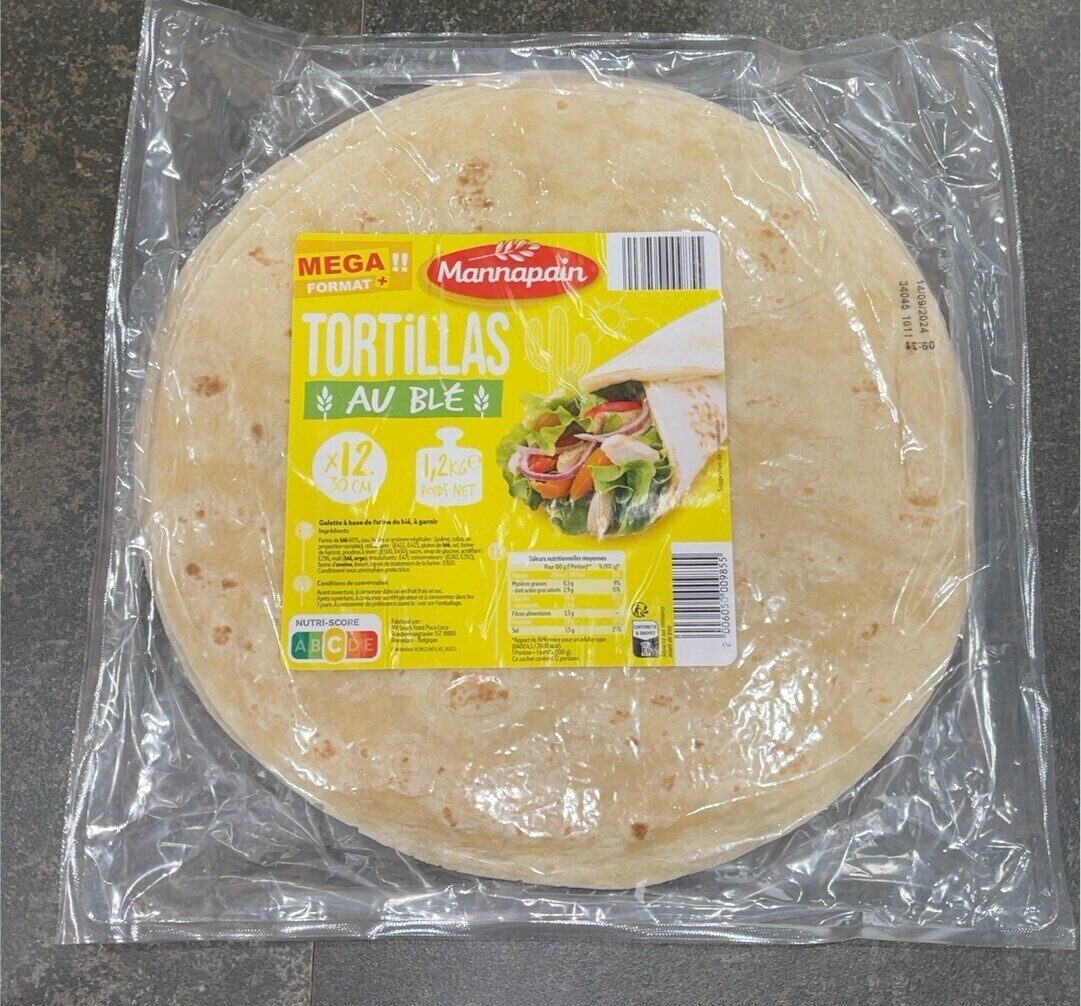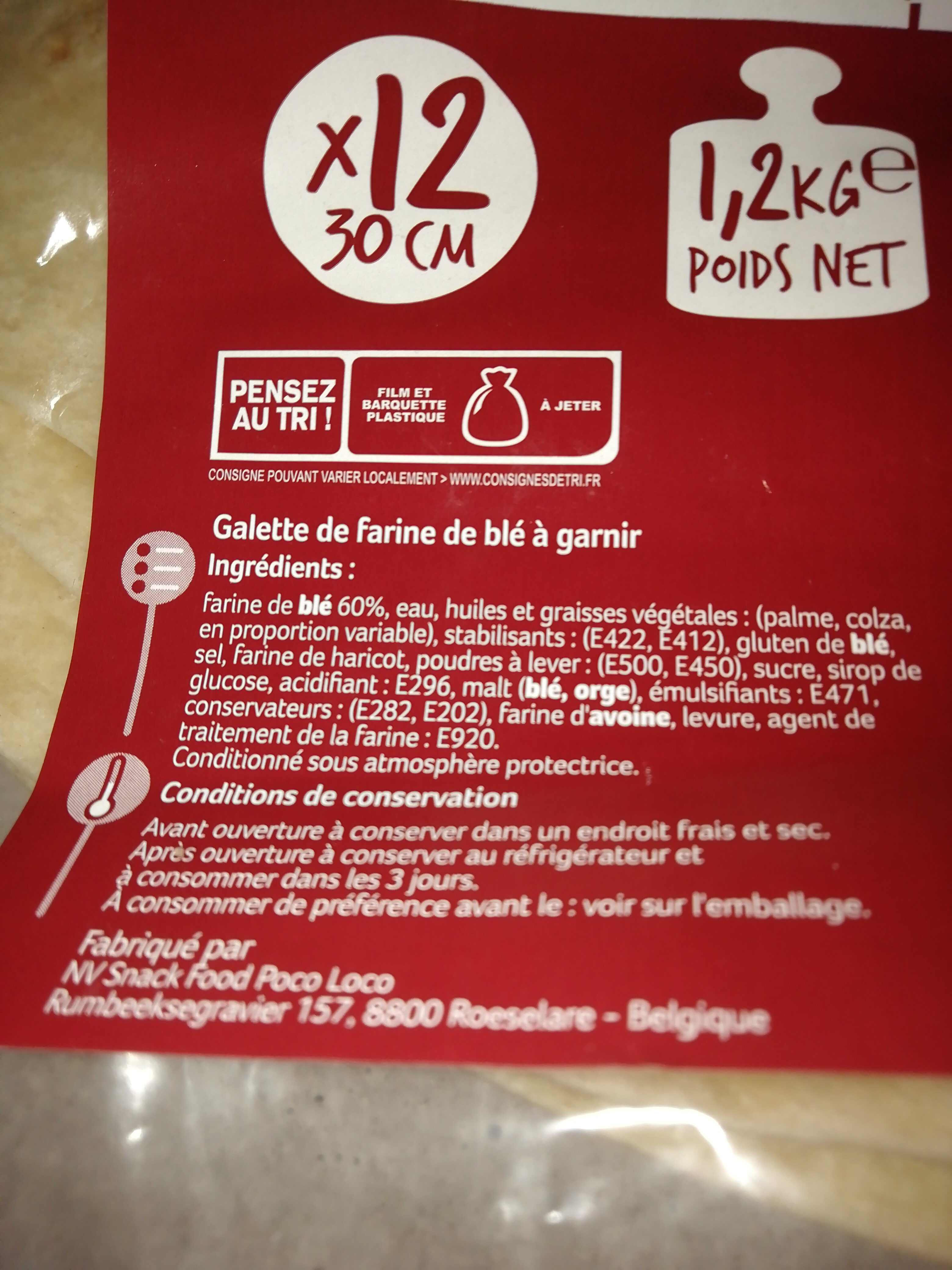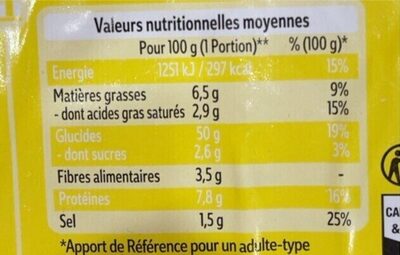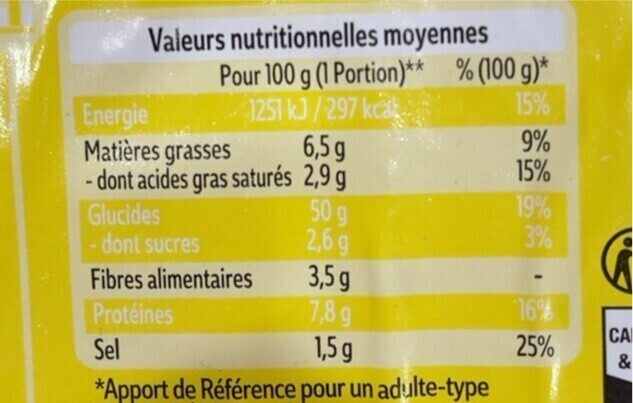Tortillas XXL de blé - MANNAPAIN
This product page is not complete. You can help to complete it by editing it and adding more data from the photos we have, or by taking more photos using the app for Android or iPhone/iPad. Thank you!
×
Barcode: 2006050009855 (EAN / EAN-13)
Packaging: fr:Barquette en plastique, fr:Film en plastique
Brands: MANNAPAIN
Categories: Aliments d'origine végétale, Aliments et boissons à base de végétaux, Céréales et pommes de terre, Pains, Pains blancs, Pains de blé, Pains plats, Tortillas de blé
Labels, certifications, awards: Nutriscore
Countries where sold: France
Matching with your preferences
Environment
Packaging
Transportation
Threatened species
Report a problem
Data sources
Product added on by kiliweb
Last edit of product page on by roboto-app.
Product page also edited by halal-app-chakib, openfoodfacts-contributors, packbot, quechoisir, teolemon, yuka.C4B8LseJBO0tIcbz9ZIp2jaVCszQEsFQRnwBog, yuka.sY2b0xO6T85zoF3NwEKvlklKcIrHqW_5KQz4xkKKyfO0J7XpauorwtDlM6s, yuka.sY2b0xO6T85zoF3NwEKvllJnUOHMuWvNPDbTgkyzy9HRKLfEZM5L2bXrPKs, yuka.sY2b0xO6T85zoF3NwEKvlldAaeDugzDLFgfhoHDX4fiHK83pUPZY79H0M6g, yuka.sY2b0xO6T85zoF3NwEKvlm92XYWCuQrLNC3UiWSv7_G_J4XJWYhTxonQC6s, yuka.sY2b0xO6T85zoF3NwEKvlmZlUP3V-BjubULQhWygmMbXMJXWPMEv_qjoPag, yuka.sY2b0xO6T85zoF3NwEKvlmxJA8PGnxjuaTjvvVah_e_RBLDDeI9-uJrXbao, yuka.sY2b0xO6T85zoF3NwEKvln4fdOXVkBbKLU3jn0iFmtiDNa3zOM5gwZfkMKg, yuka.sY2b0xO6T85zoF3NwEKvlnNrcv3MiBDdJyXRnBKN4cWyMIf6Toh7_qiiNag, yuka.sY2b0xO6T85zoF3NwEKvlnZMUcXnp2rmaQTUuUiqzfe-IJ_PXv1z5ZfqNqg.










